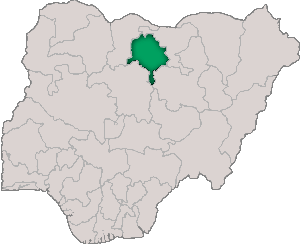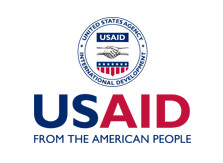Kano

The health and educational status of citizens of Kano State has been challenged by institutional resistance to family planning, lack of access and resistance to vaccinations, poor health infrastructure, a significant nomadic population that is difficult to reach, and low enrollment rates in public primary schools. In Kano State, fewer girls attend public primary schools because parents favor enrolling them in Islamiyya schools due to lower costs, their focus on Islamic values, and shorter amount of time required to complete the basic curriculum.
But communities in 16 Local Government Areas (LGAs) in the State are beginning to enjoy better health and education services through a partnership between the Kano State Government and the COMPASS Project. Since October 2004, COMPASS has been working in collaboration with government service providers and with community members, policy makers and religious leaders to improve the use of healthcare and education services.
|
|
COMPASS works in 16 Local Government Areas (LGAs) in the State of Kano:
- Dala
- Kano municipal
- Gwale
- Nassarawa
- Warawa
- Ajingi
- Gaya
- Garko
- Bichi
- Tsanyawa
- Kura
- Kibiya
- Bebeji
- Kabo
- Gabasawa
- Gwarzo
| | Eighty-six percent of Kano’s population (women, adolescents, and men) is benefiting from COMPASS-supported interventions. And with the recent enlargement of COMPASS’ portfolio to include polio eradication, COMPASS has begun to provide technical support and professional guidance to the Polio Eradication Initiative Team on behavior change communication as well as training and leadership for core trainers, central trainers, supervisors and vaccinators. The Project is also using newly-formed community groups, called Community Coalitions, to find and vaccinate unvaccinated children.
Achievements:
- 412 service providers trained to provide improved Reproductive Health (RH) and Family Planning (FP) services
- 4,117 primary school teachers trained in improved methods for teaching English and math
- $300,000 leveraged through in-kind and cash contributions by community members and local government for implementation of health projects
- 530,000 visits for RH/FP services
- 580,000 visits for immunization
- 201,156 pupils enrolled in COMPASS-supported primary schools
- 96 Parent-Teacher Association (PTA) micro-grants awarded to improve the basic infrastructure of schools
- 704 PTA executive members trained on school administration and project management
- 43 scholarships awarded to primary education students from Kumbotso College of Education
- 4,117 teachers and 201,156 pupils reached through Interactive Radio Instruction (IRI)
- 30 IRI lessons aired over the airwaves
- 258 master trainers, teachers, and health workers trained on school health and nutrition
- 38 Community Coalitions, 266 school Quality Improvement Teams and 80 health facility Quality Improvement Teams formed to identify, prioritize and resolve health issues
- Nine health facilities renovated and equipped to provide improved RH/FP services to an approximate of 1698,148 beneficiaries
- 140 health facilities and 160 community-based providers supported to provide improved FP/RH services
- Two youth-friendly health centers established
- 7,200 young people reached with information on RH/FP
- 26,000 insecticide treated bednets distributed
|
